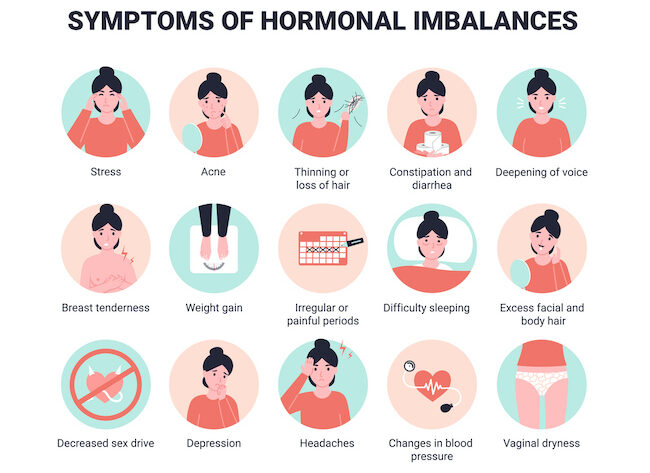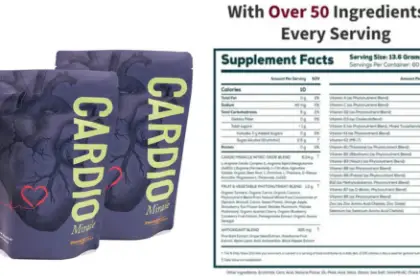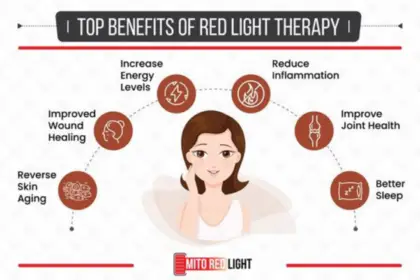Here at Green Living Tribe, we are all about helping you discover all of the ways to support your journey to healthy living. Whether it’s boosting your lymphatic health, avoiding toxic foods and chemicals, or improving your cognitive function naturally, we feel this type of information is more important to share with the world than ever before.
Today, we will discuss our hormones, and how they play a critical role in regulating certain aspects of our well-being, influencing everything from our energy levels and mood to our ability to think and concentrate. Fortunately, one powerful way to support hormonal balance is through the foods we eat.
By incorporating specific hormone supporting foods into our diet, we can repair our physical health, enhance emotional stability, and boost cognitive function.
What Are Hormones?
The human body produces a wide array of hormones, each with its unique function and purpose. Hormones act as chemical messengers, carrying important signals throughout our bodies to regulate various processes, including growth, metabolism, reproduction, and mood.
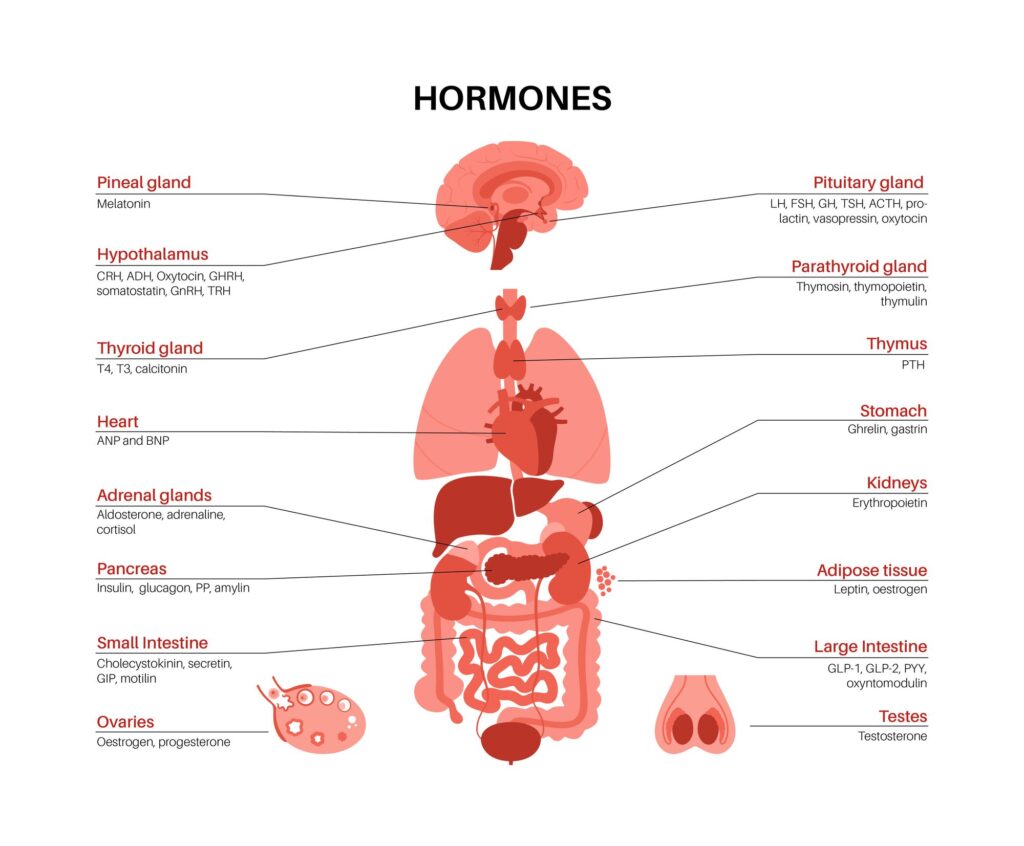
However, factors such as stress, poor diet, environmental toxins, and lack of sleep can disrupt the delicate balance of hormones, leading to a host of physical, emotional, and cognitive issues.
By consciously choosing to consume foods that support hormonal balance, we can nourish our bodies and promote overall well-being. These hormone-supporting foods are packed with essential nutrients, antioxidants, healthy fats, and other bioactive compounds that positively impact hormone production and regulation.
Types Of Hormones And Their Purpose
There are many types of hormones in the body that serve different purposes. Today, we will review 4 specific hormones that are very important to keep our physical, mental and emotional health in check.
- Progesterone: Progesterone is a hormone primarily produced by the ovaries in females and, to a lesser extent, by the adrenal glands in both males and females. Its primary role is to prepare and maintain the uterus for pregnancy.During the menstrual cycle, progesterone levels increase after ovulation to support the thickening of the uterine lining, preparing it for potential implantation of a fertilized egg. If pregnancy occurs, progesterone helps sustain the pregnancy and supports fetal development.Progesterone also plays a role in regulating menstrual cycles and is involved in breast development and milk production. Specific foods can help support the production of progesterone. Those foods include Cashews, Citrus Fruits, Fresh Caught Salmon (avoid farm-raised, here’s why), and Oats. It is always best to buy local and/or organic when possible.
Get all the benefits of citrus fruits without the acidity.
Check out Pure L Citrulline Powder Here. - Estrogen: Estrogen is a group of hormones, including estradiol, estrone, and estriol, primarily produced by the ovaries in females. Estrogen is responsible for the development and maintenance of secondary sexual characteristics in females, such as breast development and the growth of pubic hair.It plays a vital role in regulating the menstrual cycle and is involved in the thickening of the uterine lining during the first half of the menstrual cycle. Estrogen also contributes to bone health by promoting calcium absorption and helps maintain healthy cholesterol levels.Additionally, it plays a role in mood regulation and cognitive function. It is important to avoid processed soy products, as soy can mimic estrogen, and throw off your body’s hormonal levels. If you choose to eat soy, make sure that it is organic, and as unprocessed as possible(edamame, tofu are good options).
Some foods that will support a healthy production of estrogen include: Pistachios, Carrots, Celery, and Dates. (Dates make a great sweetening agent for smoothies or sauces. Sustainably sourced dates are sweet with a rich, intensive caramel-like taste when they ripen. More specifically, they feel like chocolate, with notes of cinnamon, butterscotch, and toffee.)
Celery Powder is a great addition to smoothies, juices, soups, and sauces! Check it out here!
- Cortisol: Cortisol, often referred to as the “stress hormone,” is produced by the adrenal glands in response to stress or low blood sugar levels. Its primary function is to help the body respond to stress by increasing blood sugar levels, suppressing the immune system, and modulating inflammation.Cortisol also plays a role in regulating blood pressure and maintaining cardiovascular function. In normal circumstances, cortisol levels fluctuate throughout the day, following a diurnal pattern, with higher levels in the morning and lower levels in the evening.However, chronic stress or prolonged exposure to high levels of cortisol can have negative effects on the immune system, metabolism, and mental well-being. Eating plenty of good quality Olive Oil, Sweet Potatoes, Avocado, and Leafy Greens will support your body in maintaining healthy cortisol production. If you don’t care for leafy greens,
- Thyroid Hormones: Thyroid hormones, including thyroxine (T4) and triiodothyronine (T3), are produced by the thyroid gland, a butterfly-shaped gland located in the neck. These hormones are crucial for regulating metabolism, growth, and development throughout the body.They help determine how fast the body uses energy, how sensitive it is to other hormones, and how effectively it functions. Thyroid hormones play a role in controlling body temperature, heart rate, digestion, and brain development.Imbalances in thyroid hormone production, such as hypothyroidism (low levels) or hyperthyroidism (high levels), can lead to a range of symptoms affecting energy levels, weight management, mood, and cognitive function.
Foods that support the thyroid hormone production include Eggs, Goat Yogurt, Brazil Nuts, and Seaweed.
Check out Organic Spirulina Powder to add a boost of nutrients to your smoothies!
Understanding the roles and functions of progesterone, estrogen, cortisol, and thyroid hormones is important for maintaining overall hormonal balance and well-being. Proper regulation and balance of these hormones are essential for reproductive health, emotional stability, energy levels, cognitive function, and so much more.
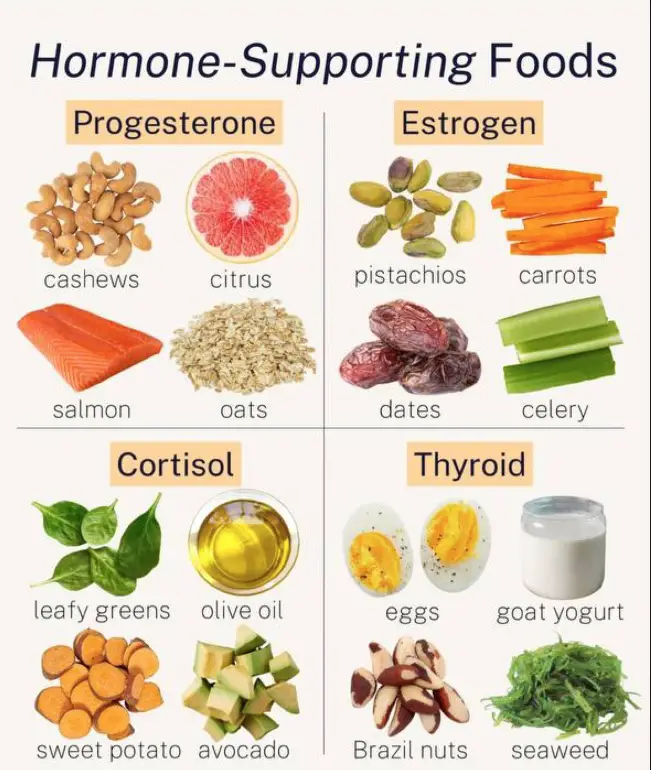
Here’s How Hormone-Supporting Foods Can Help You:
- Regulate Hormonal Imbalances: Hormone-supporting foods contain essential nutrients, vitamins, and minerals that aid in regulating hormone production and function. They can help address common hormonal imbalances such as estrogen dominance, insulin resistance, thyroid dysfunction, and adrenal fatigue.
- Enhance Mood and Emotional Stability: Hormones influence your mood, emotions, and mental well-being. Consuming hormone-supporting foods can provide the necessary nutrients to support the production of neurotransmitters like serotonin, dopamine, and norepinephrine, which play a vital role in maintaining a positive mood and emotional balance.
- Improve Energy Levels: Hormonal imbalances can lead to fatigue and low energy levels. By nourishing your body with hormone-supporting foods, you provide it with the necessary fuel and nutrients to optimize hormone production, resulting in increased energy and vitality.
- Support Weight Management: Hormone-supporting foods can assist in weight management by promoting a healthy metabolism, reducing cravings, and supporting the body’s ability to burn fat efficiently. Balanced hormone levels are essential for maintaining a healthy body weight and preventing weight-related complications.
- Enhance Fertility and Reproductive Health: Hormonal imbalances can significantly impact fertility and reproductive health in both men and women. Including hormone-supporting foods in your diet can improve reproductive hormone levels, support healthy menstrual cycles, regulate ovulation, and enhance sperm quality, ultimately increasing the chances of conception.
- Promote Healthy Aging: Hormone imbalances can accelerate the aging process and contribute to age-related conditions. Hormone-supporting foods rich in antioxidants, omega-3 fatty acids, and phytochemicals can help reduce inflammation, combat oxidative stress, and promote healthy cellular function, thus supporting graceful aging.
- Improve Cognitive Function: Hormonal imbalances can affect cognitive abilities, memory, and focus. Hormone-supporting foods, especially those rich in omega-3 fatty acids, antioxidants, and brain-boosting nutrients, can enhance brain health, improve cognitive function, and support mental clarity.
- Reduce Risk of Chronic Diseases: Hormonal imbalances are associated with an increased risk of various chronic conditions, including diabetes, cardiovascular disease, and certain cancers. By consuming hormone-supporting foods, you provide your body with the necessary nutrients to maintain hormone balance, reduce inflammation, and lower the risk of these diseases.
It is important to focus on a balanced and diverse diet that includes nutrient-dense foods such as fruits, vegetables, whole grains, lean proteins, healthy fats, and herbs or spices known for their hormone-regulating properties.
Whether you’re seeking to boost your energy levels, reduce mood swings, improve mental clarity, or simply enhance your overall quality of life, these hormone-supporting foods will serve as a valuable tool in your journey towards better physical health, emotional stability, and cognitive function.
Signs Of A Hormonal Imbalance
A hormone imbalance can manifest in various ways, and the specific symptoms can vary depending on the hormones involved and the individual’s unique physiology. Here are some common symptoms that may indicate a hormone imbalance:
- Irregular Menstrual Cycles: Changes in the length, timing, or intensity of menstrual periods can be a sign of hormonal imbalance, particularly in relation to estrogen and progesterone.
- Mood Swings and Emotional Instability: Fluctuations in hormones, such as estrogen, progesterone, and serotonin, can lead to mood swings, irritability, anxiety, or depression.
- Weight Fluctuations: Hormonal imbalances may contribute to unexplained weight gain or difficulty in losing weight, particularly when there is an imbalance involving insulin, estrogen, or thyroid hormones.
- Fatigue and Low Energy: Persistent fatigue, lack of energy, or feeling sluggish can be symptoms of hormonal imbalances, such as low thyroid hormone levels or adrenal dysfunction.
- Sleep Problems: Hormonal disruptions can affect sleep patterns, leading to insomnia, difficulty falling asleep, or poor-quality sleep.
- Changes in Libido: Decreased sex drive or changes in sexual function can occur due to imbalances in hormones like testosterone or estrogen.
- Skin Issues: Hormonal imbalances may contribute to acne breakouts, oily skin, dryness, or other skin problems.
- Hair Loss or Thinning: Hormonal imbalances, such as excess androgens or imbalanced thyroid hormones, can result in hair loss or thinning, either on the scalp or other areas of the body.
- Digestive Issues: Hormonal fluctuations can impact digestion, leading to symptoms like bloating, constipation, or diarrhea.
- Cognitive Changes: Hormonal imbalances, particularly involving estrogen, progesterone, and thyroid hormones, can cause memory lapses, difficulty concentrating, or brain fog.
- Hot Flashes or Night Sweats: Sudden feelings of intense heat, often accompanied by sweating, can be symptoms of hormonal changes, especially during menopause.
- Changes in Appetite: Hormonal imbalances may contribute to increased or decreased appetite, cravings, or difficulty in controlling food intake.
- Muscle Weakness or Loss: Hormonal imbalances, such as low levels of testosterone or growth hormone, can lead to muscle weakness or a decrease in muscle mass.
- Bone Density Loss: Imbalances in hormones like estrogen or parathyroid hormone can contribute to bone density loss, increasing the risk of osteoporosis.
- Anxiety or Depression: Hormonal imbalances, including imbalances in serotonin, cortisol, or thyroid hormones, can impact mood and contribute to symptoms of anxiety or depression.
It’s important to note that these symptoms can be indicative of various health conditions, and a proper diagnosis requires medical evaluation by a healthcare professional. If you suspect a hormone imbalance, it is recommended to seek guidance from a healthcare provider who can conduct the necessary tests and provide appropriate treatment options.
Recommended Reading:
